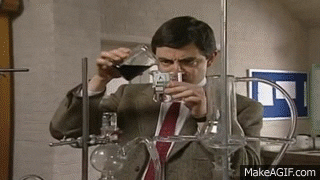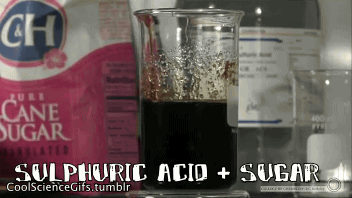
Chemistry is that branch of science which deals with the structure, properties, and composition of matter.

Chemistry is a field of science that focuses on studying the matter, including its properties, structure, composition, and changes. This subject is mainly concerned with the interactions between atoms, molecules, and chemical reactions. The importance of chemistry cannot be overstated, as it helps us understand the world around us, from the food we eat to the air we breathe and the materials we use.
Understanding the World around You: Chemistry helps you understand why things behave the way they do. It explains how everyday items like water, air, and food work and interact.
Safe and Healthy Living: Chemistry teaches you about the properties of substances, so you can make informed choices about what you eat, drink, and use. It helps ensure your safety and the safety of others.
Cooking and Food: Chemistry plays a big role in cooking. It helps you understand why certain ingredients react and change when you cook them, making your food taste better and safer to eat.
Medicine and Health: Chemistry is important in making medicines that treat illnesses and keep us healthy. It helps doctors and scientists create effective treatments and understand how our bodies work.
Cleaning and Hygiene: Cleaning products you use at home, like soap and detergents, work because of chemistry. Chemistry helps you keep your surroundings clean and germ-free.

The branch of chemistry that studies the fundamental principles and theories governing the behavior and properties of matter at the atomic and molecular level.

The branch of chemistry that deals with the study of hydrocarbons and their derivatives.

The branch of chemistry that deals with the study of all elements except hydrogen and carbon and their derivatives.
The study of the properties of water, such as its boiling point, freezing point, and pH.
Biochemistry is the study of chemical processes that happen inside living organisms.
The process of photosynthesis, where plants use sunlight to convert carbon dioxide and water into glucose and oxygen.

Industrial Chemistry is the application of chemistry to make things like chemicals, materials, and products in large quantities.

The production of nylon and other different chemicals.
Nuclear Chemistry is the study of the nucleus of an atom and the changes it undergoes. This field involves the investigation of nuclear reactions, including radioactive decay, fusion, and fission.
Nuclear chemistry in medicine includes the production of medical isotopes used in imaging and radiation therapy for cancer treatment and especially in nuclear bombs.

Nuclear chemistry in medicine includes the production of medical isotopes used in imaging and radiation therapy for cancer treatment.
Environmental Chemistry is the branch of chemistry that studies the chemical processes and phenomena that occur in the environment.
Environmental chemists may study the effects of pollutants such as pesticides or heavy metals on water quality or soil health.

Analytical Chemistry is a branch of chemistry that deals with the identification, separation, and quantification of chemical substances in various samples.

Medicinal Chemistry is a specialised field of chemistry that focuses on designing and synthesising new drugs for treating various diseases. It involves combining principles of chemistry and biology to create effective and safe medications.
The development of penicillin.

Quantum Chemistry is a type of chemistry that studies physical models in chemical systems through experiments and mechanics. It is also known as molecular quantum mechanics
Understanding the behaviour of electrons in the carbon dioxide molecule to predict its reactivity with other molecules.

Green Chemistry is a branch of chemistry that focuses on designing chemical products and processes that reduce or eliminate the use and generation of hazardous substances.
Instead of using toxic solvents to clean equipment, Green Chemistry suggests using non-toxic alternatives like water or vegetable oil.


0 of 10 Questions completed
Questions:
You have already completed the quiz before. Hence you can not start it again.
Quiz is loading…
You must sign in or sign up to start the quiz.
You must first complete the following:
0 of 10 Questions answered correctly
Your time:
Time has elapsed
You have reached 0 of 0 point(s), (0)
Earned Point(s): 0 of 0, (0)
0 Essay(s) Pending (Possible Point(s): 0)
Which branch of chemistry studies the behavior and properties of matter at the atomic and molecular level?
Which chemical process occurs inside living organisms?
Which branch of chemistry deals with the identification, separation, and quantification of chemical substances?
Which branch of chemistry focuses on designing chemical products and processes that reduce the use of hazardous substances?
Which branch of chemistry studies the nucleus of an atom and the changes it undergoes?
What is the study of the properties of water, such as its boiling point, freezing point, and pH?
Which branch of chemistry involves the application of chemistry to make chemicals, materials, and products in large quantities?
Which branch of chemistry focuses on the study of hydrocarbons and their derivatives?
Which branch of chemistry is concerned with studying the chemical processes and phenomena that occur in the environment?
Which branch of chemistry combines principles of chemistry and biology to design and synthesize new drugs?